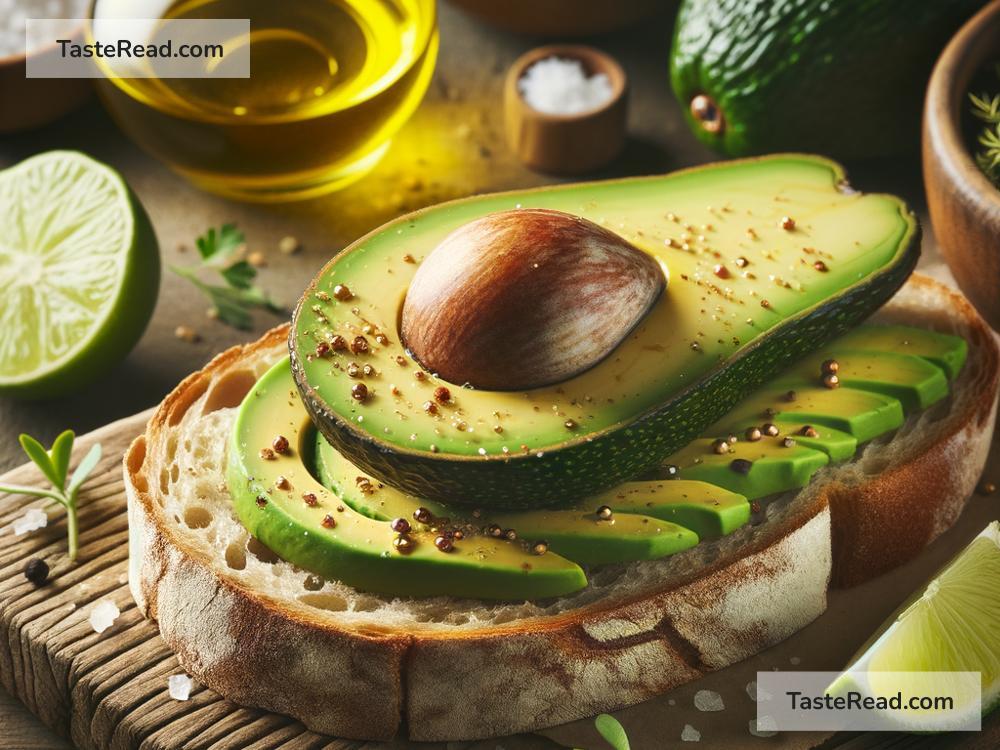Why Avocados Are Considered Nature’s Butter
Have you ever heard someone call avocados “nature’s butter”? This nickname is well-deserved because avocados share many similarities with butter while also offering unique benefits that make them a favorite ingredient for health-conscious eaters across the globe. In this blog, we’ll explore why avocados earn this title and why they deserve a spot in your daily diet.
What Makes Avocados Like Butter?
The first reason avocados are compared to butter is their creamy, rich texture. When you scoop out the flesh of a ripe avocado, it’s soft, smooth, and easily spreadable—just like butter. You can smear avocado on toast, mash it into dips, or use it as a topping for almost anything, much like how you’d use butter.
That’s not all—avocados also have a naturally rich and fatty profile. Butter is prized for its fat content, which adds flavor and creaminess to recipes, and avocados deliver the same qualities. However, the type of fat in avocados is what makes them truly special.
Healthy Fats: The Avocado Advantage
Butter is made primarily from animal fat, which is high in saturated fats. While a little saturated fat here and there is fine for most people, consuming too much can lead to health issues such as higher cholesterol levels. In contrast, avocados are rich in heart-healthy monounsaturated fats. These fats are known to improve cholesterol, support heart health, and lower the risk of diseases like stroke and heart attack.
Because of these fats, avocados are considered a healthier alternative to butter. For example, if you’re making toast, swapping butter for mashed avocado can offer a similar creamy texture but with added health benefits.
A Nutrient Powerhouse
While butter is mainly just fat, avocados are packed with nutrients. They contain vitamins like Vitamin K, which supports healthy blood clotting and bones, and Vitamin E, an antioxidant that helps protect your cells from damage. Avocados also have potassium, a mineral that helps balance your body’s fluids and supports normal blood pressure.
On top of that, avocados contain fiber, which butter does not. Fiber is great for digestion, keeps you feeling full longer, and improves your gut health. This combination of nutrients makes avocados a more nutritious choice compared to traditional butter.
Versatility in Cooking
Another reason avocados are called nature’s butter is their versatility. Just like butter, avocados can be used in a wide variety of dishes. Here are a few ways people use avocados:
-
Spread: Mash or slice an avocado and spread it on toast. It’s a healthier alternative to butter with a satisfying creamy taste.
-
Baking: Believe it or not, avocados can replace butter in baked goods. Because of their high fat content, they create a moist and rich texture in cakes, brownies, and muffins.
-
Sauces and Dressings: Blend avocado into sauces, dips, or salad dressings for a smooth consistency without relying on cream or butter.
-
Smoothies: Add avocado to your smoothie for a creamy texture and a boost of healthy fats.
-
Cooking Oil Substitute: Avocado oil, made from the flesh of the fruit, can replace butter or other oils in cooking and baking. It’s great for high-heat cooking and has a mild flavor.
This versatility shows how avocados can easily step into the role butter traditionally plays in the kitchen, while also adding more nutrients to your meals.
A Staple for Vegan and Lactose-Intolerant Diets
Because avocados are plant-based, they’re ideal for anyone following a vegan diet or avoiding dairy due to lactose intolerance. For these individuals, avocados provide a creamy, buttery option that fits perfectly into their lifestyle and helps them enjoy dishes that call for a rich and smooth ingredient.
Whether it’s spread on toast, blended in salad dressings, or mashed into guacamole, avocados replicate the indulgent qualities of butter in vegan-friendly recipes.
How Avocados Benefit the Environment
Many people don’t just look for healthy alternatives to butter; they also care about choosing environmentally friendly options. Butter production involves raising livestock, which can contribute to greenhouse gas emissions and require significant land and water resources. In comparison, growing avocados has a smaller carbon footprint (though it’s still important to choose sustainably grown avocados). By opting for avocados as a butter alternative, you may help make more eco-conscious choices.
Conclusion
Avocados have rightfully earned the nickname “nature’s butter” thanks to their creamy texture, healthy fats, versatility, and ability to replace butter in recipes without sacrificing taste or richness. They’re nutritious, delicious, and environmentally friendly, making them a fantastic addition to your meals.
Whether you’re spreading mashed avocado on your toast, blending it into a sauce, or using it in baked goods, this green superfood is a wonderful way to enjoy creamy goodness while supporting your health. So, next time you reach for butter, consider giving avocados a try instead—and discover why this humble fruit has become a star in kitchens everywhere!


